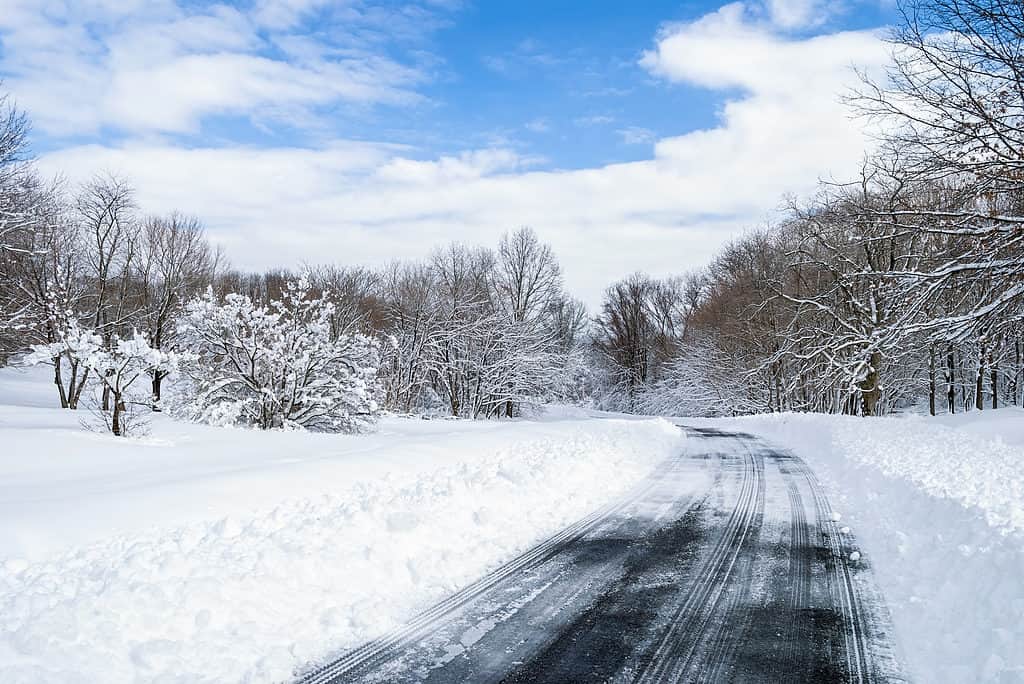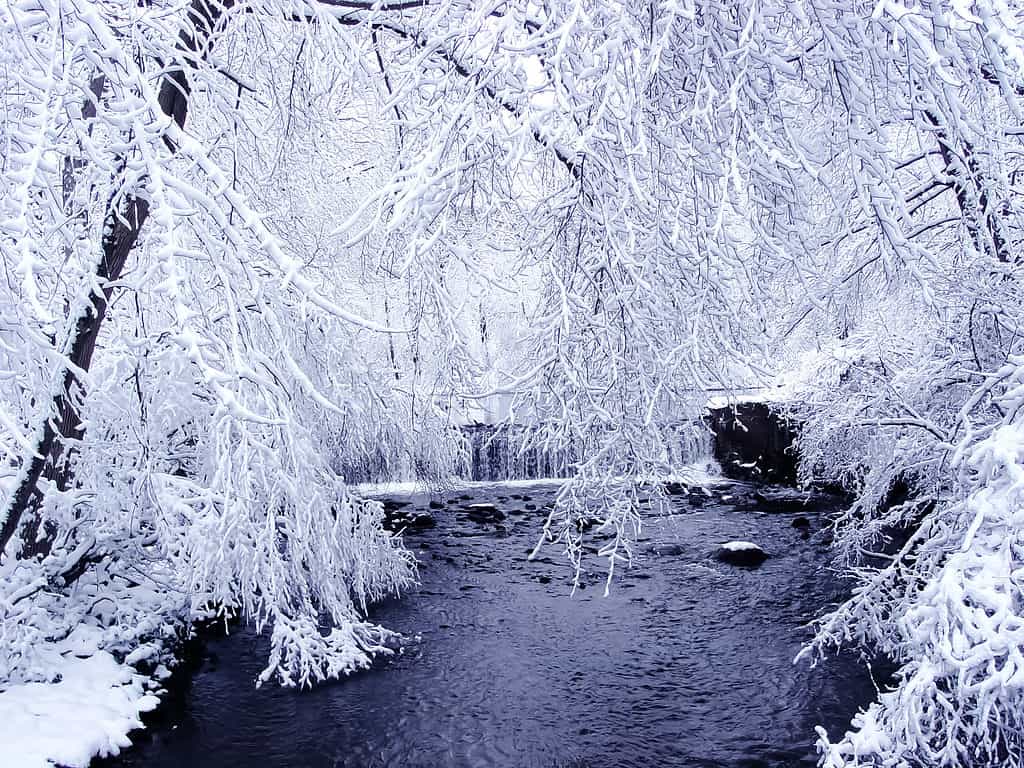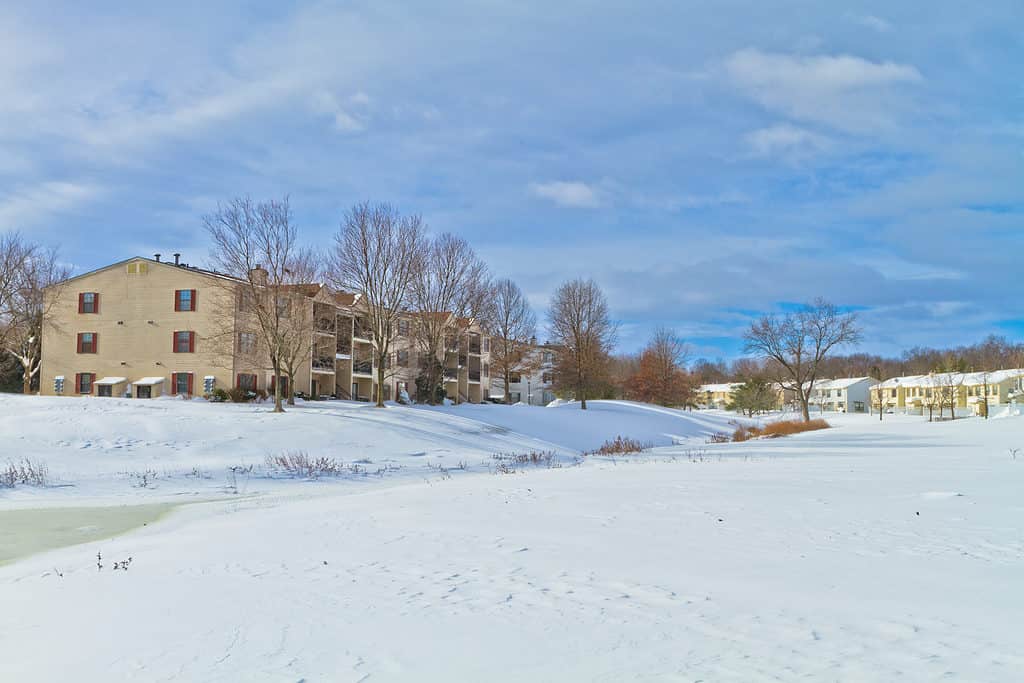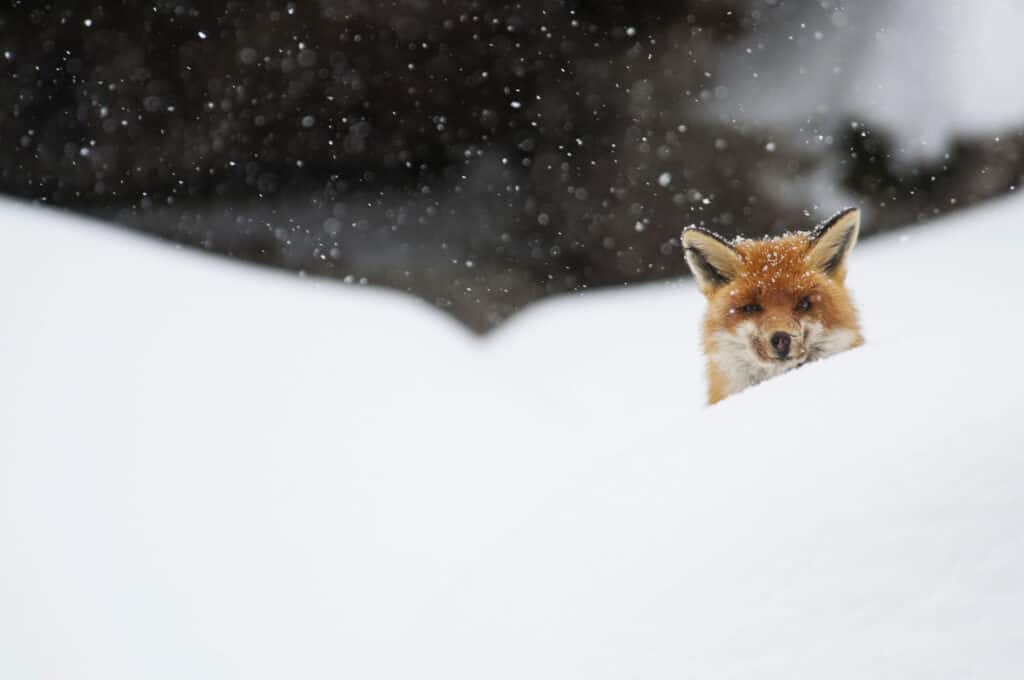New Jersey is known for its highly variable weather. But why is that so, and how cold does the state get during the winter? Moreover, what’s the coldest January on record, and what’s the state’s lowest temperature ever? Keep reading to find out!
What Is the Climate Like in New Jersey?

New Jersey has a humid tropical climate in the south and a humid continental climate in the north, especially in the northwest.
©Andrew F. Kazmierski/Shutterstock.com
New Jersey has a humid tropical climate in the south and a humid continental climate in the north, especially in the northwest. It’s also where it snows a lot since the area features higher elevations.
However, the weather isn’t too harsh thanks to the state being close to the Atlantic Ocean, which brings warm ocean air and provides moisture. For instance, many Nor’easters or East Coast lows, meaning snowstorms that affect the northeastern part of the United States and Canada’s Atlantic coast, become rain due to the warm ocean air. Moreover, New Jersey is highly affected by global warming, as it’s believed to be the fastest-warming state among all U.S. states.
Although temperatures are generally lower in the north, temperatures below freezing have been recorded across the entire state. Snow is a common phenomenon in New Jersey between the 15th of November and the 15th of April, being more significant in the interior northern part of the state.
What’s New Jersey’s Coldest January on Record?

New Jersey’s coldest January on record dates to 1904.
©Wollertz/Shutterstock.com
New Jersey’s coldest January on record dates to 1904. That’s when the state’s coldest temperature was recorded, and it happened in River Vale, a township in Bergen County. As you’ve probably guessed, it is located in the northeastern part of the state, where winters are the harshest and temperatures are the lowest. This year is also considered the state’s coldest year on record, judging by the statewide average temperature of 47.8 degrees.
Others, however, maintain unequivocally that the coldest winter in New Jersey, implicitly January, occurred in 1961, when temperatures remained below freezing from the 19th of January to the 3rd of February – that is, the region was continuously freezing for 16 days During that period, the temperatures dropped to -30 degrees Fahrenheit! Many parts of the state were hit by snowstorms, causing people to try their best not to leave their homes.
But wait, we’re not done! We have another hypothesis – some people believe that the coldest winter in New Jersey dates as far back as 1780, when, on the 17th of January, the Hudson and East Rivers froze completely. People could walk all the way from New Jersey to Manhattan over the frozen water! During that winter, the United States was hit by 28 snowstorms, and the temperatures were almost always below freezing point.
What’s New Jersey’s Coldest Temperature on Record?
New Jersey’s coldest temperature on record was -34 degrees Fahrenheit on the January 5, 1904. Although some may say that such low temperatures are highly uncharacteristic for the state, climatologists believe the temperature was recorded accurately and was consistent with the weather conditions on that day. Moreover, other mercury readings in the region reported the same temperature.
Besides, the location of the River Valley makes it possible for the region to attain such low temperatures, especially during that period. A treeless landscape covered in deep, fresh snow near an ice-making pond—ideal conditions for the continuous cold!
What Is the Coldest City in New Jersey?

Sussex is considered the coldest city in New Jersey.
©Cedric Weber/Shutterstock.com
Sussex is considered the coldest city in New Jersey. Its average low temperature is 37.9 degrees Fahrenheit, while the average low temperature during January, the coldest winter month, is 15.8 degrees Fahrenheit. Moreover, the city has an average of 142.6 days during which temperatures reach or drop below freezing.
Sussex is part of Sussex County and is in the northern area of New Jersey. Its climate is much cooler than in other parts of the state due to its elevation and inland location. In January, the monthly daily average temperature is 25.8 degrees Fahrenheit. The most extreme temperature in Sussex is -39 degrees Fahrenheit, which was recorded on the 21st of January, 1994.
Why Is New Jersey So Cold?
The northern part of New Jersey is much cooler because of the area’s highlands and mountains. Sources show that sometimes the northern part can have an average temperature that is around ten degrees cooler than the temperature in the coastal zone! Moreover, the annual average snowfall is 40 – 50 inches in the north and only 10 – 15 inches in the south. Therefore, we wouldn’t say New Jersey is a cold state overall because the temperature difference between the north and the rest of the state is pretty dramatic.
Moreover, because of its highlands and mountains, the north features more cloudy and rainy days than the south because the air forced to rise over the mountains produces clouds and precipitation. At the same time, the rest of the state has clear skies.
However, we wouldn’t say that the state is very warm or constant either. Since it’s located halfway between the equator and the North Pole, New Jersey’s weather is highly variable. Check out the table below to understand how variable the weather is in the state.
| Northern part | Central + Southern Part | |
|---|---|---|
| Average number of freeze-free days | 163 | 179 in the central and southern interior 217 along the coast |
| Average annual precipitation | 51 inches from the center to the north | 40 inches along the southeast coast |
| Snowfall | From the 15th of October to the 30th of April | From the 15th of November to the 15th of April |
| Thunderstorms (an average of 25 – 30 per year) | More thunderstorms | Fewer near the coast and slightly more towards the interior |
What Animals Live in New Jersey?

Foxes are common animals you might find in New Jersey.
©Beatrice Prezzemoli/Shutterstock.com
New Jersey is home to a myriad of species of mammals, reptiles, birds, amphibians, and others. Some of them are:
- Beavers
- Coyotes
- Foxes
- Hawks
- Owls
- Squirrels
- Woodchucks
- Raccoons
- Black bears
- Bats
- Snakes
- Hummingbirds
- Thrushes
- Warblers
So how do these animals survive the harsh winters in the northern part of the state? Some animals, like black bears, bats, and woodchucks, hibernate. Cold-blooded amphibians and reptiles resort to brumation – a hibernation-like state. Many birds migrate to the south to survive the winter. However, other species are active all year round – coyotes, deer, and squirrels, among others. They’ve adapted to cold temperatures by storing more body fat in the summer and growing thicker fur in the winter.
Up Next:
- Discover the Highest Point in New Jersey
- 11 Must-See Birds In New Jersey
- Discover 8 Extinct Animals That Lived in New Jersey
The photo featured at the top of this post is © FotosForTheFuture/Shutterstock.com
FAQs (Frequently Asked Questions)
What was the coldest temperature in New Jersey?
New Jersey’s coldest temperature on record was -34 degrees Fahrenheit on the January 5, 1904.
What is the coldest January on record?
New Jersey’s coldest January on record dates to 1904. That’s when the state’s coldest temperature was recorded, and it happened in River Vale, a township in Bergen County.
Thank you for reading! Have some feedback for us? Contact the AZ Animals editorial team.






